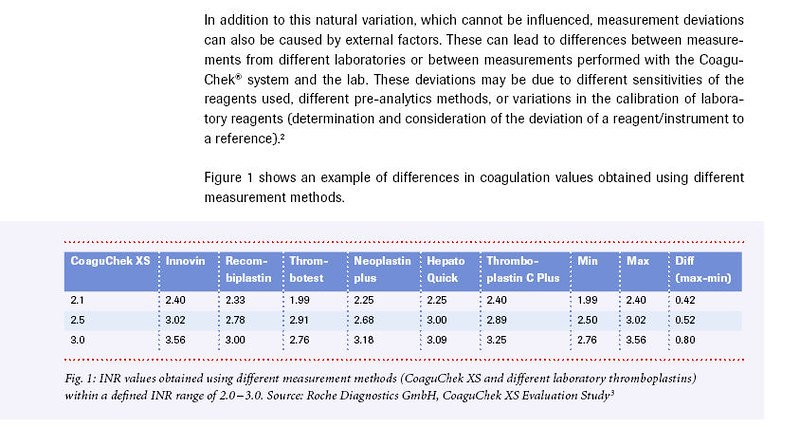I’m not feeling great about coming home from surgery, still likely unstable, and having to rely on people who may not know what they’re doing, to keep me in range
I feel the exact same way Amy.
I have been self testing now since day 19 of recovery and am so glad that I am now in control of staying in range.
You may have read my story on the other thread, but I will recap and give an update.
For me, it did not go so well relying on other people to keep me in range. A number of people who should have known better, did not notice that I was on amiodarone, which had the effect of almost doubling the potency of warfarin at the dose of amiodarone I was at. It was missed by the nurse practitioner who prescribed both meds, missed by the pharmacist and missed by the Coumadin Clinic.
Had I been prepared ahead of time with my own self monitoring device, I would not have gotten into the trouble that I did, as I would have tested daily upon my release. However, I was at the mercy of others in this regard.
Tested Monday 3/29 at hospital, day of release - INR= 3.1. I had shown very stable INR the past 4 days in the hospital. Their plan for me was to not test Tuesday and then have a third party nurse do a home visit and get blood on Wednesday. He turned out to be incompetent. He took blood from the top of my hand, the only time anyone has ever done that, and did not get enough. Nurse: "I think that should be enough" Me: "Are you sure? Should you take more if you are uncertain?" Nurse: "No, I think this will be plenty."
He did not instill me with confidence. I found out later that day that Quest rejected his vial because he did not have the blood up to the green line. Wonderful.
So, he comes back the next morning, Thursday. This time he can't get more than a drop or two of blood. He tells me that my blood is too thick???? Totally incompetent.
Before he left my home I was on the phone to the Coumadin Clinic asking them to call in a blood draw for me to Quest and that I would go there myself to be sure it gets drawn. The doc at the Coumadin Clinic said not to worry about it. My INR had shown great stability in the hospital and I could easily wait a few more days before testing if I wanted. I was insistent that I test that day- I'm so glad that I insisted on this.
Blood drawn at noon on Thursday with a rush order (STAT). Results came at 4pm- INR = 9.7. The Coumadin Clinic asked me a number of questions, including what meds I was on, then figured out it was the amiodarone that made it spike. They had me take some vitamin K2 that I had on hand and called in a prescription for vitamin k1- which is the antidote for very high INR.
The vitamin K1 and K2 did the job all too well, but gave some concern when I hit INR of 1.6. Fortunately, that appeared to be the bottom and I soon got things headed in the right direction.
I'm so grateful for Pellicle and the others on this board for giving us newbies the confidence to self monitor, as well as sharing the publications that show that self monitoring drastically reduces events.
Pellicle steered me towards a great deal for a Coaguchek on Ebay and by day 19 I was self testing and keeping in range. After getting blood drawn from my arms 7/9 days, I was bruising up and very glad to be testing from a prick on the finger with instant feedback.
It is very easy to do. I also have had great cooperation from the Coumadin Clinic. They do not seem offended at all that I self test and I call in results and they suggest my dosage. They also work with me, and allow me to give input and have changed my dose when I felt it should be 1mg higher or 1mg lower after talking it through. I asked them if they could call in several month's worth to the pharmacy, so that I would not need to keep bugging me, and they were happy to do so- I now have 3 months warfarin supply, with refills that will take me out 9 months.
It feels so good to be in control of my own destiny with INR. Strips for the Coaguchek run about $ 5 each with tax and shipping, so it is reasonable. It will be a little expensive on the front end, as I will be testing every day or two for a couple of weeks. I'm tapering off of amiodarone, and so I will need to watch how this affects my INR very closely.
As much as it is nice to have the cooperation of your local clinic, at the end of the day nothing can stop you from buying your own device and strips and taking charge of your own INR.
Please continue to keep us posted Amy.
























